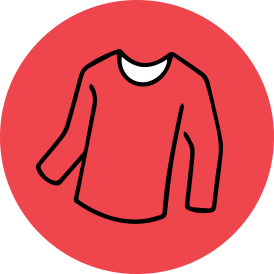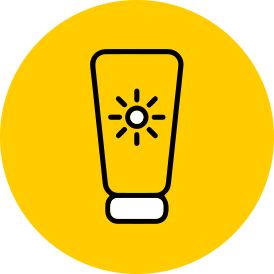How to prevent sun damage
Melanoma is almost always preventable. As you get older, the build-up of UV exposure over your lifetime leads to damaged skin and an increased likelihood of melanoma. Use our SLIP, SLOP, SLAP, SEEK, SLIDE guide below as a reminder of how to prevent sun damage.

Slip
Cover up with long-sleeved shirts with collars, as well as long pants, skirts or lavalava. You can look out for clothing that uses UV protective fabrics, known as Ultra Violet Protection Factor or UPF.

Slop
Slop on some broad-spectrum sunscreen, that is at least SPF 30 which protects against both UVA and UVB rays and is water resistant. Remember to apply 20 minutes before going outside and reapply every 2 hours with a two coat approach.
Check our Frequently Asked Questions (FAQs) for more detailed information on sunscreen.
Watch video >

Slap
Slap on a broad-brimmed hat with at least a 7.5cm brim. Did you know caps do not protect the neck, ears, or side of the face?

Seek
Seek shade, particularly from September to April, and especially between 10am and 4pm. Schedule outdoor activities for times of the day with the least UV radiation. Use an umbrella or a portable shade.

Slide
Slide on some close-fitting sunglasses that don’t let the sun rays into the side of your frames. Polarised glasses help, particularly with UV reflection from concrete, water and snow.
How to check your skin
Watch this four-minute video about self-checking your skin – it could save your life!

